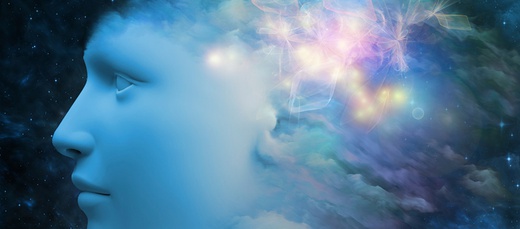The Bahá’í teachings encompass a profound exploration of the symbiotic relationship between genius, knowledge, and the illumination offered by universal enlightenment. At the heart of this discourse lies the understanding that true intelligence transcends mere intellectual prowess; it encapsulates a holistic approach that intertwines spirituality, ethics, and a fervent commitment to the betterment of humanity. This article delves into the intricate layers of Bahá’í principles, elucidating their implications for personal growth and societal advancement.
To begin with, the Bahá’í teachings posit that genius is not an exclusive trait possessed by a select few, but rather a potential inherent in all individuals. This paradigm shift in perception invites individuals to reconsider their own capabilities and embrace a sense of agency in the pursuit of knowledge. Bahá’u’lláh, the founder of the Bahá’í Faith, articulates that “the greatest gift is the gift of understanding,” suggesting that wisdom is an empowering force that cultivates both personal and communal upliftment.
Knowledge, in the Bahá’í context, is categorized not just as a repository of facts, but as a dynamic, living entity that serves to elevate the human experience. It is through the acquisition of knowledge that individuals can develop critical thinking skills and discernment, enabling them to navigate the complexities of the modern world. The scriptures emphasize that knowledge should be pursued not for the sake of distinction or status, but rather as a means to contribute to the common good. This altruistic orientation towards learning fosters a culture of service and emphasizes the interconnectedness of humanity.
Moreover, the illumination of universal enlightenment is intricately linked to the concept of the oneness of humanity. The Bahá’í teachings declare that the pursuit of knowledge and genius should not be confined to any geographical, cultural, or religious boundaries. This universality is evidenced by the promotion of equality among all people, regardless of their background. Rather than adhering to tribalistic paradigms that often sow discord, Bahá’ís advocate for a collective journey towards enlightenment, wherein diverse perspectives are embraced and celebrated.
The exploration of genius within the Bahá’í framework reveals that it thrives in an environment conducive to creativity and innovation. This suggests that educational systems should not merely focus on rote memorization, but rather foster critical inquiry and exploration. The Bahá’í approach to education underscores the need for a balanced curriculum that nurtures both spiritual and intellectual capacities. By prioritizing the development of virtues alongside intellectual faculties, individuals emerge as well-rounded contributors to society.
The relationship between genius and knowledge also invites contemplation of the ethical dimensions of learning. It is imperative that knowledge is wielded with integrity and moral fortitude, as the power of intelligence can be double-edged. The Bahá’í teachings stress that knowledge devoid of ethics may lead to exploitation and injustice, thereby underscoring the necessity for a code of conduct that accompanies intellectual pursuits. Bahá’í writings advocate for a discernment that enables individuals to assess the implications of their discoveries, ensuring that the fruits of knowledge enrich rather than detract from the broader tapestry of human existence.
Furthermore, the light of universal enlightenment serves as a guiding principle in the Bahá’í understanding of progress. It is described as an enlightening force that dispels ignorance, prejudice, and superstition. The cultivation of enlightenment encourages individuals to seek truth beyond conventional paradigms, allowing for a more nuanced understanding of the world and one’s place within it. Bahá’ís are called to reflect upon their biases and preconceived notions, paving the way for transformative insights that can uplift both the self and society as a whole.
In the context of contemporary challenges, the synthesis of genius, knowledge, and universal enlightenment becomes increasingly pertinent. As the world grapples with pressing issues such as climate change, social inequality, and political unrest, the Bahá’í teachings propose a principled approach to problem-solving that prioritizes collaboration and understanding. The complexities of these challenges necessitate innovative thinking and collective effort, encouraging individuals to harness their genius and knowledge towards cohesive solutions that benefit all of humanity.
Moreover, the notion of community engagement resonates deeply within the Bahá’í discourse. The pursuit of genius and knowledge is not contemplated in isolation; it is fundamentally linked to the well-being of others. Bahá’ís are prompted to view knowledge as a collective asset, thereby fostering an ethos of shared responsibility. This sense of interconnectedness reinforces the idea that the development of genius must entail an awareness of the moral implications of one’s actions and an authentic commitment to uplifting those within one’s sphere of influence.
In summation, the Bahá’í teachings invite a profound reevaluation of genius and knowledge, framing them as instruments for universal enlightenment. This comprehensive understanding promotes a vision where intellectual and spiritual growth converge, elevating humanity and fostering a dynamic, cooperative global society. By embracing these principles, individuals can embark on a journey towards enlightenment that transcends conventional understanding, ultimately illuminating a path towards a more harmonious and flourishing existence for all. The encouraging message that lies within this framework beckons everyone to participate actively in this collective endeavor, underscoring the latent potential within humanity to forge a brighter future. As we navigate this intricate tapestry of existence, the light of universal enlightenment stands as a testament to the transformative power of knowledge and the genius inherent in every soul.
